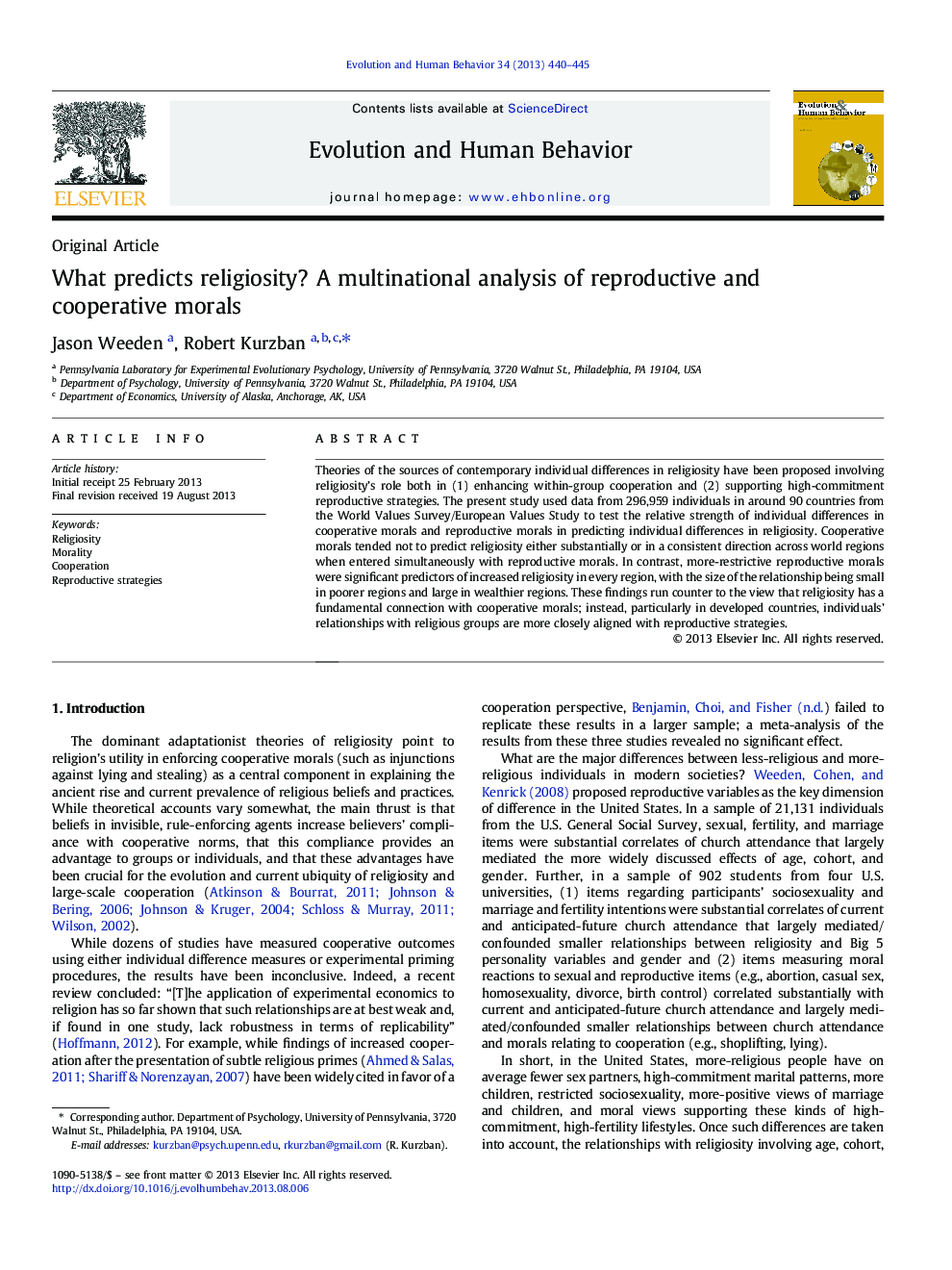| Article ID | Journal | Published Year | Pages | File Type |
|---|---|---|---|---|
| 943160 | Evolution and Human Behavior | 2013 | 6 Pages |
Theories of the sources of contemporary individual differences in religiosity have been proposed involving religiosity’s role both in (1) enhancing within-group cooperation and (2) supporting high-commitment reproductive strategies. The present study used data from 296,959 individuals in around 90 countries from the World Values Survey/European Values Study to test the relative strength of individual differences in cooperative morals and reproductive morals in predicting individual differences in religiosity. Cooperative morals tended not to predict religiosity either substantially or in a consistent direction across world regions when entered simultaneously with reproductive morals. In contrast, more-restrictive reproductive morals were significant predictors of increased religiosity in every region, with the size of the relationship being small in poorer regions and large in wealthier regions. These findings run counter to the view that religiosity has a fundamental connection with cooperative morals; instead, particularly in developed countries, individuals’ relationships with religious groups are more closely aligned with reproductive strategies.
